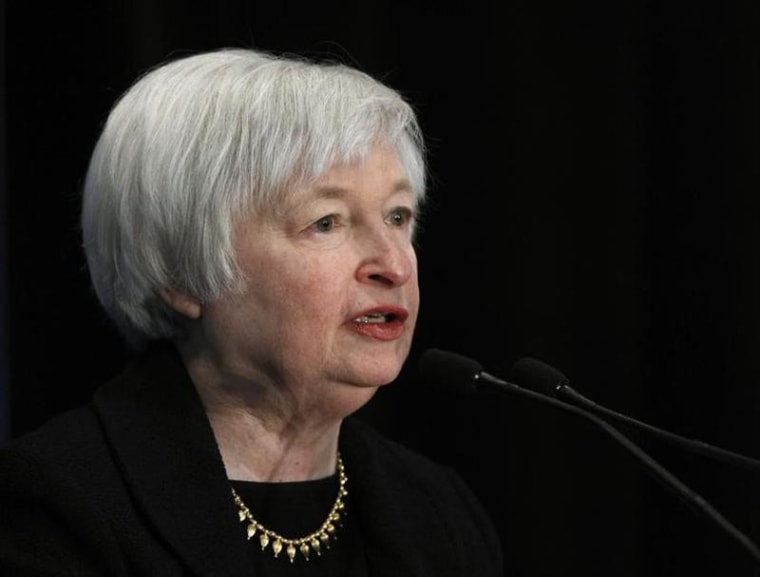WASHINGTON — A White House official said on Wednesday that Federal Reserve Vice Chair Janet Yellen was front-runner for the top job at the U.S. central bank when Ben Bernanke steps down, a shift in strategy after former economic adviser Lawrence Summers withdrew from consideration.
With the end of Bernanke's term looming in January and a compressed congressional calendar through the end of the year, President Barack Obama is expected to move forward quickly with a nomination. White House spokesman Jay Carney said on Monday the announcement could come as soon as next week.
Although Yellen was initially handicapped as the favorite to replace Bernanke, whose second term expires on Jan. 31, a series of news reports in recent months had made clear that Obama preferred Summers.
But Summers, a highly regarded but controversial figure, stirred a hornets' nest of opposition and on Sunday withdrew from consideration after widespread criticism of his candidacy from liberal Democrats.
Some Washington policy veterans said his decision opened the door to long-shot candidates, such as former Fed vice chairs Roger Ferguson and Donald Kohn. But the White House appears to be trying to quash that speculation.
Decision coming 'reasonably soon'
Bernanke has never said he plans to step down although it had long been rumored that he wanted to leave after a grueling tenure battling the financial crisis and deep 2007-2009 recession.
In a television interview in June, Obama said the former Princeton professor had "stayed a lot longer than he wanted or he was supposed to," making it clear that Bernanke's second term would be his last.
Asked about his plans at a news conference Wednesday, Bernanke said: "I'd prefer not to talk about my plans at this point. I hope to have more information for you at some reasonably soon date."
If nominated, Yellen, 67, would require Senate confirmation.
She has strong backing among Democrats, including a number of members of the Senate Banking Committee, which would need to clear the nomination before a final Senate vote.
Sen. Charles Schumer, a member of both the committee and the Senate Democratic leadership, added his voice to the ranks of supporters. "I think the president should choose Yellen," he said.
A Senate Democratic aide said the White House was calling senators about the Fed and that Yellen's name was coming up in conversations, a further sign an announcement might come soon.
More than a deputy
Yellen became the U.S. central bank's No. 2 in 2010.
Previously, she was president of the San Francisco Federal Reserve Bank, head of the White House Council of Economic Advisers under President Bill Clinton and a governor on the Fed Board. She has also taught economics at the University of California at Berkeley.
At the Fed, she has been a staunch supporter of Bernanke's super-easy monetary policy, earning a reputation as one of the most dovish officials at the central bank, but she has gone well beyond simply acting as Bernanke's deputy.
She led a panel of policymakers who rewrote the Fed's rules on communications, and she is widely credited with convincing her colleagues to adopt an explicit inflation target for the first time last year.
Much like her boss, she values consensus; she has never dissented on a Fed policy decision.
Somewhat controversially, she has embraced the view that the Fed should not balk at a bit of inflation if it comes as part of a policy that is bringing down too-high unemployment.
The Fed has held interest rates near zero since December 2008 and has more than tripled its balance sheet to about $3.6 trillion in a further effort to depress borrowing costs by buying government and mortgage-linked debt. On Wednesday, it said it would continue to purchase $85 billion in bonds per month.
Critics, including many Republicans, have long worried that the Fed's extraordinary actions might spark inflation, and Yellen's tolerance for some level of inflation above the Fed's 2 percent target may draw fire from Senate Republicans.
Democrats control the Senate 54-46, but any nominee for the Fed is likely to need 60 votes to overcome procedural hurdles.
Additional reporting by Richard Cowan and Rachelle Younglai in Washington, and Ann Saphir in San Francisco.
